We take a comprehensive look at the five countries and three autonomous regions that make up the Nordic Region as the next in our series of RIPE NCC Internet Country Reports.
Our latest report details the Internet landscape in Iceland, Denmark, Norway, Sweden, Finland, Greenland, the Faroe Islands and Åland. We examine the major market players, Internet number resource holdings and transfers and IPv6 readiness to understand the history and current state of Internet development in this region as well as its capacity for future growth. We also analyse the region's resilience and stability by mapping the relationship between different networks in the countries and regions, their international connectivity to the global Internet, access to K-root, traffic paths and routing security.
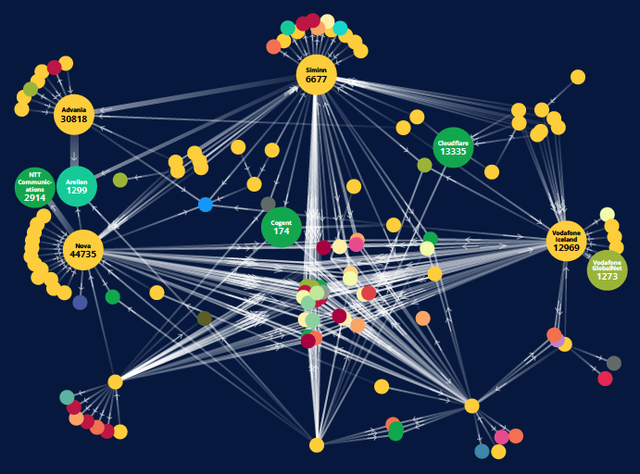
The report's key findings include:
- The region displays a relatively healthy level of market competition, although broadband and mobile prices are some of the highest in the world
- The region’s five countries hold an exceptionally large amount of IPv4 relative to their populations
- Despite holding large amounts of IPv6, many of the countries/regions show very low IPv6 capability rates, and all require further IPv6 deployment to accommodate long-term growth
- There is a high level of interconnectivity between the networks in each country
- In general, there is good diversity in international connections into and out of each country/region
- Routing is reasonably well optimised in the region, although local Internet exchange points don’t appear to be heavily used and a few paths extend across unnecessarily long distances
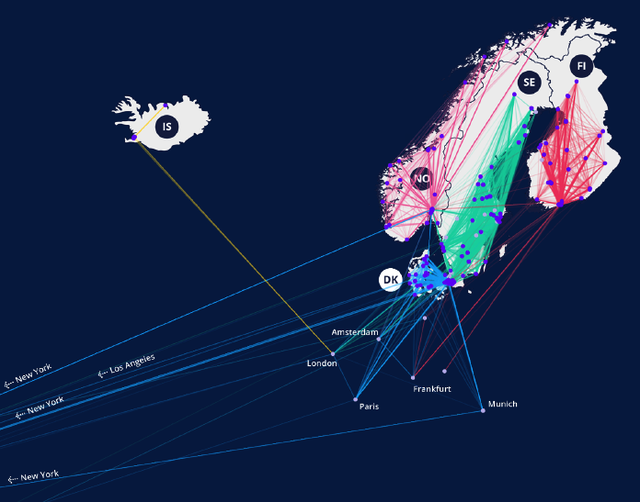
This is the tenth Internet country report that the RIPE NCC has produced in an ongoing effort to support Internet development throughout our service region by making our data and insights available to local technical communities and decision makers. We hope they are used to inform discussion, provide technical insight and facilitate the exchange of information and best practices.
The full report, along with all of the previous Internet country reports, is available here.
Additional Figures
Given limited space in the report, we weren't able to include the full figures and data for the three autonomous regions in each case. However, we want to make this information available to everyone, so we've included additional figures here. (The figures look somewhat different than those in the report but include the same information.)
Top IPv4 Holders
The top IPv4 holders in each autonomous region, and the percentage of the country's IPv4 address space that they each hold is as follows:
Greenland:
- Tele Greenland: 82%
- inu: it: 9%
- Comby: 6%
- Nanoq Media: 3%
Faroe Islands:
- Telefonverkid: 70%
- Kall: 25%
- Kringvarp Føroya: 2%
- Elektron: 2%
Åland:
- Ålands Telekommunikation: 70%
- Crosskey Banking Solutions: 9%
- Carus: 2%
- Ålands Penningautomatforening: 2%
- IP-Connect: 2%
Domestic Connectivity
Greenland
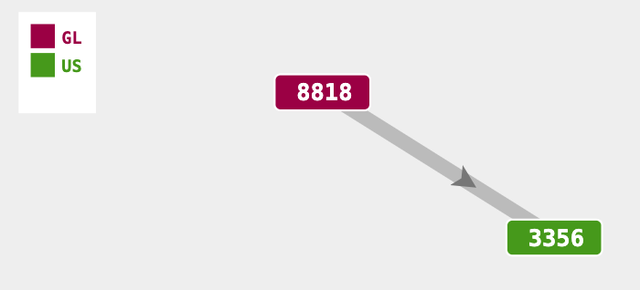
Faroe Islands
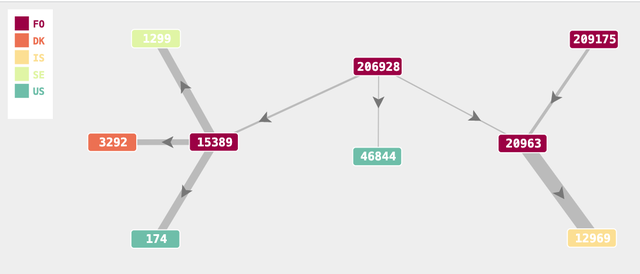
Åland
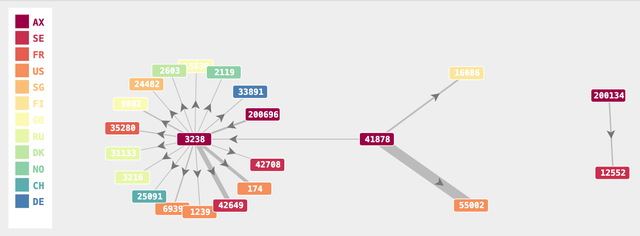
International Connectivity
Greenland

Faroe Islands
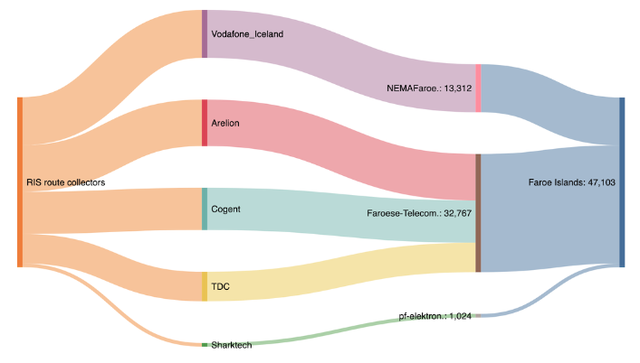
Åland
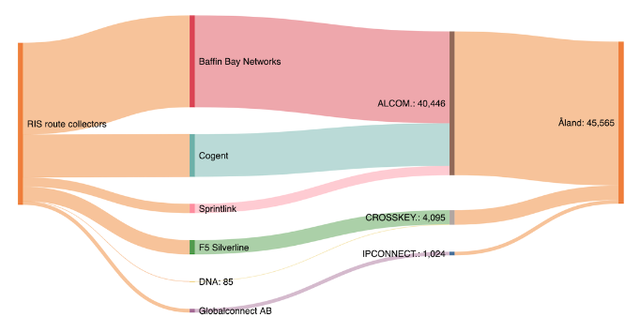
Routing Security
Percentage of address space in Greenland and the Faroe Islands covered by ROAs over time
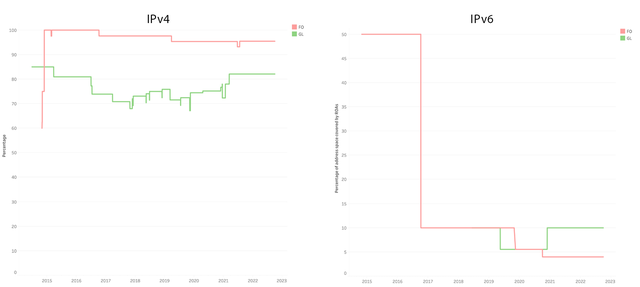
Data Sources
We want to highlight the fact that these Internet country reports are largely based on publicly available data. We hope they give you an idea about the kind of data and analysis that's possible using RIPE NCC tools and services. If this report inspires you to learn more about those tools and maybe even explore what you can do with the data yourself, check out the following:
Let us know if you have any questions about the data contained in the report, the measurements tools we used, our analyses, or anything else!
Future Reports
We plan to continue producing these Internet country reports for countries and regions throughout the RIPE NCC's service region of Europe, the Middle East and parts of Central Asia - and we want to hear from you about what would be most interesting and valuable. Please share your ideas with us below and let us know what you would like to see!

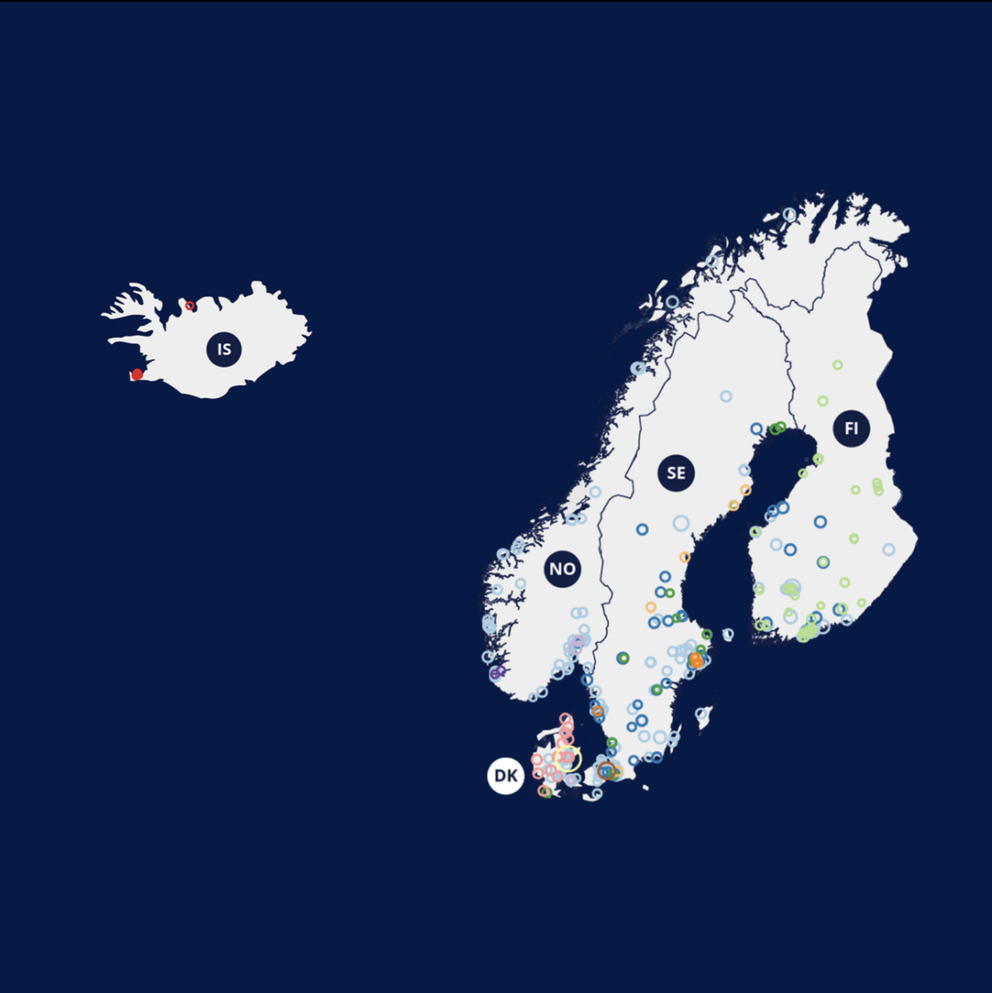
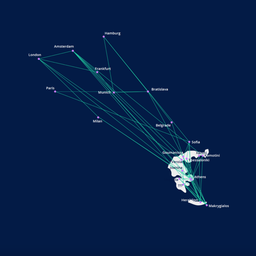
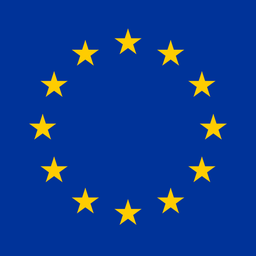
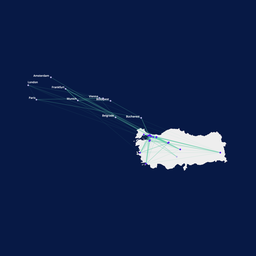

Comments 0
The comments section is closed for articles published more than a year ago. If you'd like to inform us of any issues, please contact us.